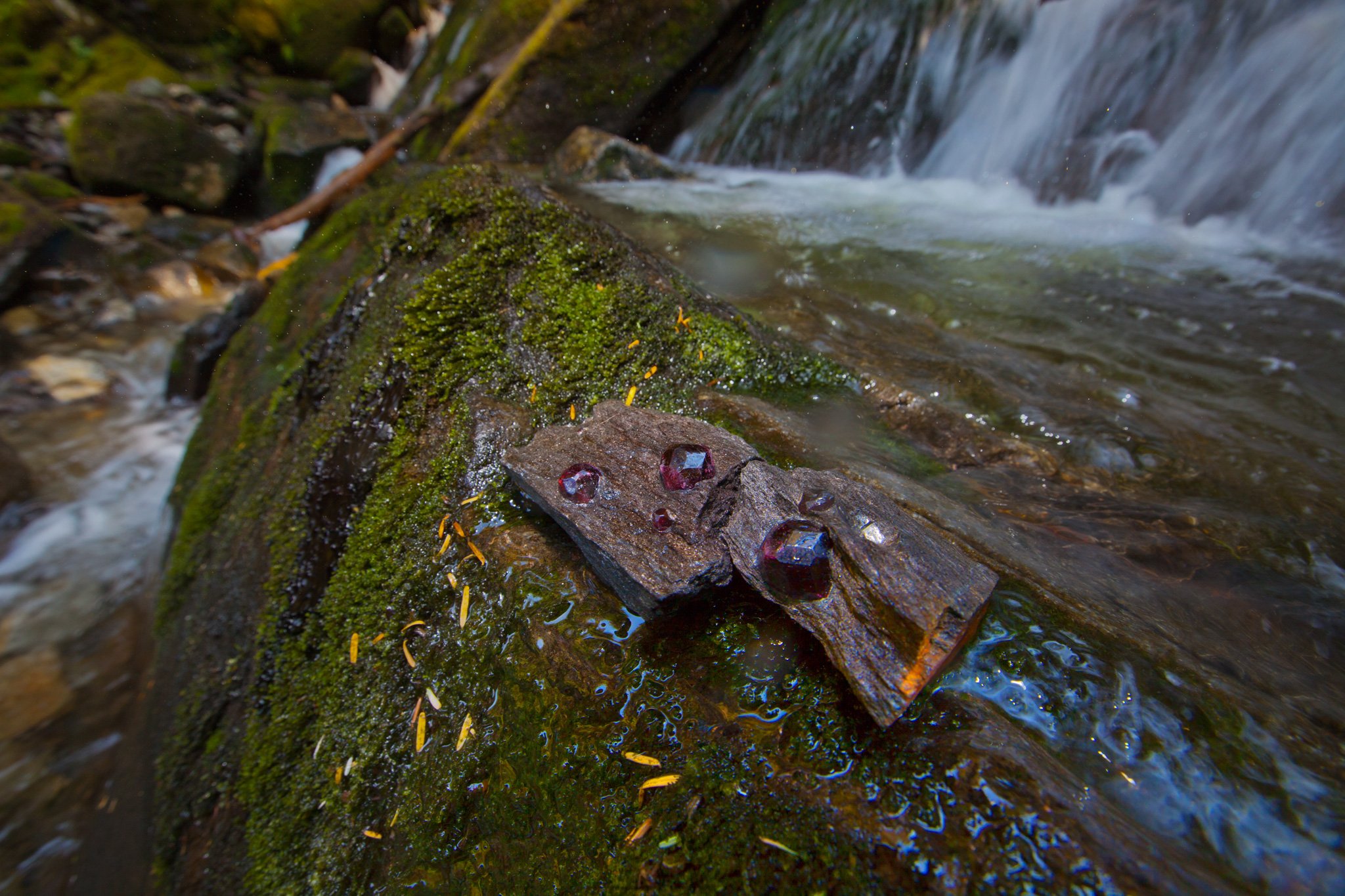
GARNET LEDGE
Photo by RE Johnson
Garnet Ledge: Discover Wrangell’s Unique Gemstone History
Garnet Ledge, located on the mainland near the mouth of the Stikine River, is just a quick 7-mile boat ride from Wrangell. This fascinating area is known for its rich deposits of garnet crystals, formed over 90 million years ago in a garnet-biotite schist along the western flank of the mountains. The intense heat and pressure in the region caused these striking garnet crystals to develop, creating a site of both geological and historical significance.
The Wrangell garnets, recognized worldwide for their luminous, faceted beauty, can vary in size but are typically ruby-red, the most common color. While not of gemstone quality for easy cutting and polishing, these garnets hold significant cultural value in Wrangell. For over a century, children have collected garnets from the ledge and sold them to visitors at the ferry terminal, cruise ship dock, and local gift shops, continuing a tradition that dates back to the early 1800s.
The existence of Garnet Ledge became known during the gold mining era of the 1860s. The first scientific analysis of the garnets was published in 1892 by J.D. Dana, followed by further documentation in the U.S. Geological Survey bulletin in 1906. In a unique chapter of its history, the ledge was once owned and mined by the Alaska Garnet Mining & Manufacturing Co., the first all-woman corporation in the United States. These pioneering women from Minnesota used the garnets to produce items such as hairpins and watch fobs. Later, the site was deeded to the Boy Scout Council of Juneau and eventually transferred to the First Presbyterian Church of Wrangell in the early 2000s.
Despite these changes in ownership, it remains a cherished tradition that only the children of Wrangell have free access to Garnet Ledge. With no power tools allowed, families head to the ledge with hand tools and buckets, creating cherished memories as they search for garnets in the rocks and streams. This tradition has deep roots in the community, forming an essential part of Wrangell’s cultural heritage.
Today, Garnet Ledge is not only a geological wonder but also a place of family tradition and local pride. For those wishing to explore the area, the Forest Service maintains a cabin at Garnet Ledge that is available for nightly rental, offering a unique opportunity to immerse yourself in the natural beauty and history of this remarkable Alaskan site.

